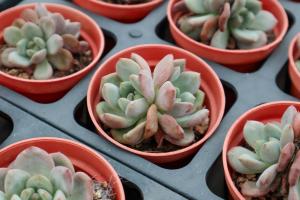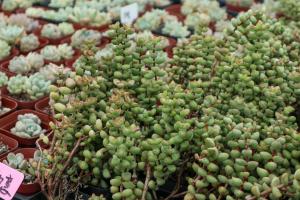Introduction
Plastic usage has been on the increase since the 1950s, and as a result, the impacts on the environment have become more noticeable. Many plastic products tend to take hundreds of years to decompose in the environment, leading to an increase in pollution. Fortunately, environmental innovations have made it possible to produce sustainable products, and biodegradable plant pots are an incredible example of an environmentally conscious product that is transforming the industry.
What are Biodegradable Plant Pots?
Biodegradable plant pots are a replacement for traditional plastic plant pots that are often used in horticulture. They are made from a range of natural materials, including cow manure, newspaper, coconut husks, and rice husks. They are designed to provide all the benefits of conventional pots while reducing the negative impact on the environment. They are biodegradable and provide the perfect solution to reducing dependency on non-renewable resources.
Environmental Benefits of Biodegradable Plant Pots
Biodegradable plant pots offer significant environmental advantages to traditional plastic pots. For instance, they are environmentally friendly, reducing the amount of waste going to landfills. They are created from natural materials and biodegrade naturally, which minimizes the toxic waste that can end up in water bodies, polluting the environment. Biodegradable plant pots provide plants with better aeration and water drainage, contributing to plant growth significantly. They can be recycled and even help improve the quality of the soil. In essence, they provide a sustainable solution to gardening and horticulture, which are essential for human survival.
Economic Benefits of Biodegradable Plant Pots
Biodegradable plant pots have been found to be cost-effective in the long-run. Although they can cost a bit more than plastic pots, they last longer and save money on replacement costs. They can also reduce the overall cost of waste disposal for nurseries by minimizing the amount of non-biodegradable trash, reducing landfill expenses. Furthermore, since they are compostable, they can be used to enrich the soil leading to better plant health and increased yield. This makes biodegradable plant pots an economically viable option over the long term, despite the initial cost increase.
Wide Range of Applications
Biodegradable plant pots are versatile and can be used for an extensive range of applications. They are perfect for horticulture, gardening, and indoor plants. Biodegradable plant pots are suitable for seed germination since the materials used do not hinder the growth of the plants. They are also eco-friendly, making them ideal for events and occasions such as weddings, functions, or other celebrations that require disposable utensils. Biodegradable plant pots offer a solution to the current problem of plastic waste in the environment, making them an excellent choice for those who want to live more sustainably.
Conclusion
Biodegradable plant pots offer an excellent solution to the problem of plastic pollution. They are environmentally friendly, cost-effective, and can be used for a wide range of applications. Using biodegradable plant pots in horticulture and gardening can help reduce the dependency on non-renewable resources and minimize the number of plastics that end up in landfills. More importantly, biodegradable plant pots offer a sustainable way of life, which is vital for our continued existence. Embracing biodegradable plant pots is just one step towards reducing the negative impact on the environment, and we should all be striving to adopt more sustainable alternatives to plastic products.

 how many times do yo...
how many times do yo... how many planted tre...
how many planted tre... how many pine trees ...
how many pine trees ... how many pecan trees...
how many pecan trees... how many plants comp...
how many plants comp... how many plants can ...
how many plants can ... how many plants and ...
how many plants and ... how many pepper plan...
how many pepper plan...






























